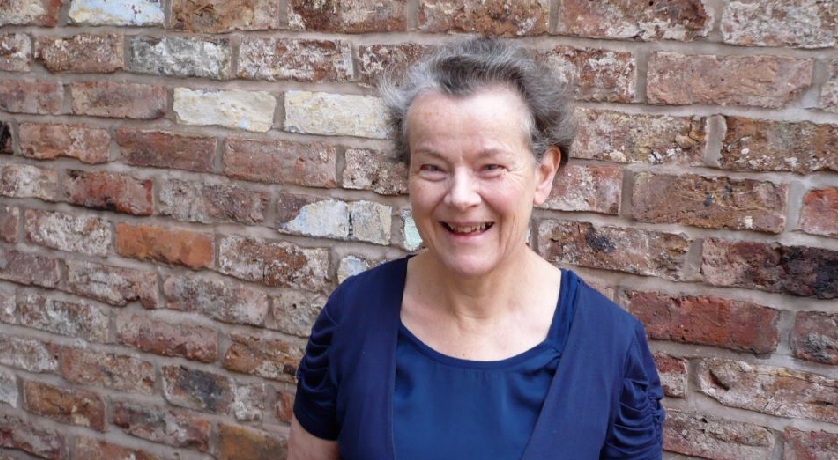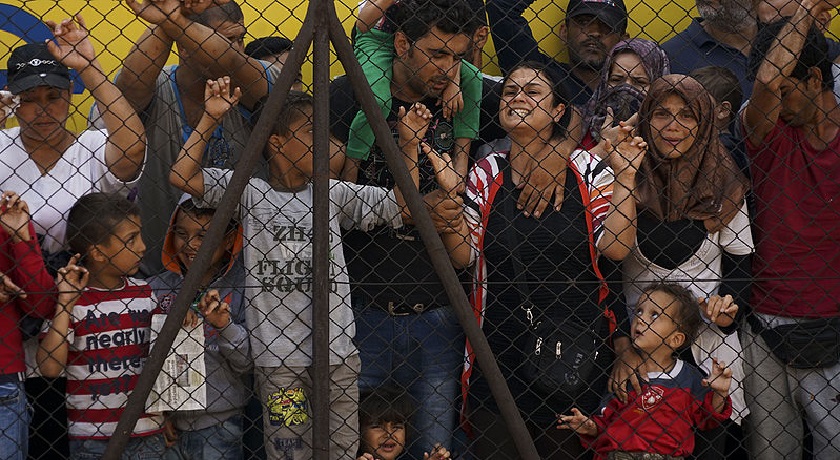
Since 2015, more than one million migrants and refugees from Syria, Afghanistan, Eritrea, and Iraq have crossed into Europe, creating division over how best to deal with resettlement. The excess of headlines about refugees can cause people to become desensitized to the plight of those in desperate need. Indeed, it’s easy to lose sight that Jesus and his family were, at one point, refugees and given refuge.
The Revd Fleur Houston, author of You Shall Love the Stranger as Yourself: The Bible, refugees and asylum (biblical challenges in the contemporary world), a retired minister of the United Reformed Church and member of Macclesfield and Bollington URC, highlights biblical perspectives on the refugee crisis, encouraging people to give to those in need.
‘Biblical perspective can highlight a contemporary crisis of compassion across the board,’ says Mrs Houston. ‘In both testaments, good behaviour to the poor, the widow, the fatherless child, is central. In the books of the law, there is also a particular concern for the wellbeing of the stranger. The bottom line is: because God loves and protects the stranger, so should God’s people.
‘Think of Abraham who welcomes three strangers by the oaks of Mamre and is blessed, or Ruth, the impoverished foreign widow who finds protection in Israel and becomes a source of blessing to her host country. She is, of course, an ancestor of Jesus. And Jesus picks up the theme. For him, the greatest commandment is the double command to love God and one’s neighbour. In light of this, strangers are to be treated justly, protected from oppression and given comfort and support.’
Mrs Houston has been actively engaged with issues surrounding refugees for more than 10 years, and continues to advocate for refugees via the Churches Refugee Network – an organisation that aims to provide a collective and ecumenical voice on issues of asylum and immigration. It was Mrs Houston’s experience of attending an immigration tribunal that inspired her to write a book: ‘The application for asylum by a Christian convert from Iran was dismissed on the grounds that his conversion to Christianity was “not credible”,’ she said. ‘The judgment was grounded in a ludicrous sequence of questions that could only at best be described as biblical trivia.
‘Through my advocacy involvement with the Churches Refugee Network, I had become aware of the rapidly worsening plight of refugees worldwide and the catastrophic effect of inhumane political policies and practices on people who are seeking asylum,’ she added. ‘As a URC minister, I see the Bible as supremely important for the life of faith, so I was particularly challenged to wrestle with the scriptures on these matters.
 ‘Giving is in God’s nature. God is gracious. The Bible insists on it. God’s graciousness is affirmed in the joy, wonder and mystery of the Christmas narratives, and in the life and teaching of Jesus. The overarching perspective of the Bible is that. because God is gracious, we followers of Jesus are also called to behave graciously. We know that poor and vulnerable men and women are richly blessed by God, and so we will in our turn be generous to the poor, the marginalised, the refugee.
‘Giving is in God’s nature. God is gracious. The Bible insists on it. God’s graciousness is affirmed in the joy, wonder and mystery of the Christmas narratives, and in the life and teaching of Jesus. The overarching perspective of the Bible is that. because God is gracious, we followers of Jesus are also called to behave graciously. We know that poor and vulnerable men and women are richly blessed by God, and so we will in our turn be generous to the poor, the marginalised, the refugee.
‘As Christians, God’s nature informs our attitudes as citizens as we challenge inhumanity and injustice. So we will call for the ultimate stranger of our day, the refugee who is seeking sanctuary, to be treated fairly, with respect and compassion.’
Focussing on what Christians can practically do to help, Mrs Houston says: ‘Everyone is different, yet all can exercise imagination and empathy. Volunteers are always needed at local refugee organisations. If there is an Immigration Removal Centre nearby, they never have enough visitors. Where there is a local City of Sanctuary – a city that takes pride in the welcome it offers to people in need of safety – there are usually opportunities for making friends with people who are seeking asylum. And, for charitable giving, national organisations like the Refugee Council, Refugee Action, the British Red Cross and Freedom from Torture all have ways to help.’
Mrs Houston’s book was reviewed by Reform magazine, here.
Picture: 1) Walter Houston, 2) Wikipedia creative Commons\Mstyslav Chernov




